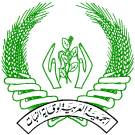International Meeting – Innovative and Sustainable Approaches to Control the Red Palm Weevil (RPW) | CIHEAM Bari, 23-25 October 2018.

Status of Host Plant Resistance to Insect Pests in the Arab World
07/17/2018
Cochineal of Cactus
07/17/2018Following the Scientific consultation and High-level meeting on Red Palm Weevil (RPW) management (FAO-Rome, 29-31 March 2017) and the RPW steering committee meeting (FAO-RNE Cairo, 22-24 May 2017), a multi-disciplinary and multi-regional strategy document on RPW management was prepared by the RPW experts team, with the support of FAO, CIHEAM and NEPPO technical officers. Among the proposed actions, the RPW experts highlighted the importance of organizing an international meeting, which will focus on the identification and transfer of the applied innovative techniques to control RPW and the need to set up a multi-disciplinary international network of stakeholders. Hence, the working group also proposed to postpone the 2nd FAO global meeting to 2019, in order to allow enough time for the establishment of the global platform and discuss the outcomes of this international meeting. Furthermore, in the framework of the 6th International Date Palm Conference (SIDPC), which was held at Abu Dhabi (UAE), a master session was organized on RPW highlighting the importance of using a multidisciplinary programme based on an integrated approach to control RPW (i.e. regulations, awareness-raising, inspections, mass trapping, preventive treatments and removal of the infected palms). In the same session, the RPW trust fund was also presented and special emphasis was laid on research, capacity development and knowledge transfer. In this context, CIHEAM Bari and FAO will organize a three-days meeting at CIHEAM Bari in the period 23-25 October 2018. This international meeting will focus on the use of a multidisciplinary approach, mainly aimed at the identification and transfer of new technologies/innovative methods to control RPW, covering a wide array of specific topics such as socio-economic impacts, early surveillance and detection of RPW, and eco-friendly control measures. Considering that FAO, through the RPW trust, will bear the costs relating to some relevant innovative tools for RPW control, the scientific committee of the meeting will select the most promising scientific activities, with a view to an efficient and sustainable application in the main palm growing areas.
For more information visit www.iamb.it





